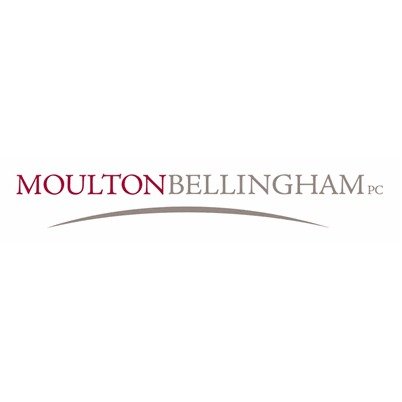Best Elder Abuse Law Lawyers in Billings
Share your needs with us, get contacted by law firms.
Free. Takes 2 min.
List of the best lawyers in Billings, United States
About Elder Abuse Law in Billings, United States
Elder Abuse Law in Billings, United States, is designed to protect the older population from various forms of abuse, including physical, emotional, financial, and neglect. The laws are focused on ensuring the safety and well-being of elderly individuals, promoting awareness, and providing channels for reporting and addressing abuse. Due to the increasing elderly population in Billings, efficient legal frameworks are vital for safeguarding their rights and dignity.
Why You May Need a Lawyer
Elder abuse can occur in many forms and situations that may necessitate legal assistance. Common scenarios where a lawyer may be needed include:
- Suspected financial exploitation by family members or caregivers.
- Cases of physical or emotional abuse in nursing homes or assisted living facilities.
- Instances of neglect leading to deterioration of health or safety hazards.
- Legal advice on guardianship or power of attorney when exploitation is suspected.
- Assistance with filing restraining orders or seeking protective measures.
In such situations, a lawyer specializing in elder abuse can help navigate the complexities of the law, ensure appropriate steps are taken, and advocate for the rights of the elder individual.
Local Laws Overview
Understanding local laws in Billings related to elder abuse is critical for effective legal intervention. Key aspects include:
- Mandatory Reporting: Certain professionals are required by law to report suspected elder abuse.
- Protection Orders: Legal avenues are available to pursue protective orders against abusers.
- Financial Exploitation Laws: Measures are in place to address and rectify financial abuse of the elderly.
- Legal Protections in Care Facilities: Specific regulations are in force to safeguard elderly residents in care settings against abuse and neglect.
These laws aim to facilitate intervention, support victims, and prosecute perpetrators effectively.
Frequently Asked Questions
What constitutes elder abuse?
Elder abuse encompasses physical, emotional, sexual, financial abuse, and neglect. It can occur in various settings, including homes and care facilities.
Who is considered an elder under the law?
An elder is typically defined as someone aged 60 or older, but specific definitions may vary depending on the jurisdiction and context of the abuse.
How can I report suspected elder abuse in Billings?
Reports can be made to local Adult Protective Services or the police. Mandated reporters, such as healthcare professionals, are legally obligated to report suspected abuse.
What legal protections are available for elder abuse victims?
Legal protections include restraining orders, court-mandated guardianships, and financial restitution for exploitation victims.
Can attorneys help in recovering lost assets from financial exploitation?
Yes, attorneys can pursue civil remedies, negotiate settlements, and work to recover misappropriated assets through legal channels.
Are there specific laws addressing elder abuse in residential care facilities?
Yes, there are stringent regulations and oversight mechanisms to address and prevent abuse in nursing homes and other care facilities.
Can a power of attorney be revoked if misuse is suspected?
Yes, legal avenues exist for revoking or modifying a power of attorney if there is evidence of abuse or exploitation.
What role do Adult Protective Services play in elder abuse cases?
Adult Protective Services investigate reports, provide services to victims, and coordinate with law enforcement and legal entities as needed.
Is emotional abuse treated with the same seriousness as physical abuse?
Yes, emotional abuse is considered serious and can lead to legal action in the same way physical abuse can.
How can advocacy organizations assist in elder abuse cases?
Advocacy organizations can offer support, resources, and guidance, helping victims navigate legal and social service systems.
Additional Resources
For individuals seeking advice on elder abuse, the following resources can be invaluable:
- Adult Protective Services: Provides investigation and support services for elder abuse cases.
- Area Agencies on Aging: Offer information and assistance to older adults and their caregivers.
- Local Bar Associations: Can provide referrals to attorneys specializing in elder law.
- National Center on Elder Abuse: Offers educational resources and research on elder abuse prevention and intervention.
Next Steps
If you suspect elder abuse or need legal assistance, consider the following steps:
- Document any evidence of abuse, including photographs, medical records, and witness statements.
- Contact adult protective services or local law enforcement to report suspected abuse.
- Consult with an attorney specializing in elder abuse to explore legal options available to you or your loved one.
- Engage with community resources for additional support and guidance.
Prompt action can help protect the rights and well-being of the elder individuals affected by abuse.
Lawzana helps you find the best lawyers and law firms in Billings through a curated and pre-screened list of qualified legal professionals. Our platform offers rankings and detailed profiles of attorneys and law firms, allowing you to compare based on practice areas, including Elder Abuse Law, experience, and client feedback.
Each profile includes a description of the firm's areas of practice, client reviews, team members and partners, year of establishment, spoken languages, office locations, contact information, social media presence, and any published articles or resources. Most firms on our platform speak English and are experienced in both local and international legal matters.
Get a quote from top-rated law firms in Billings, United States — quickly, securely, and without unnecessary hassle.
Disclaimer:
The information provided on this page is for general informational purposes only and does not constitute legal advice. While we strive to ensure the accuracy and relevance of the content, legal information may change over time, and interpretations of the law can vary. You should always consult with a qualified legal professional for advice specific to your situation.
We disclaim all liability for actions taken or not taken based on the content of this page. If you believe any information is incorrect or outdated, please contact us, and we will review and update it where appropriate.









